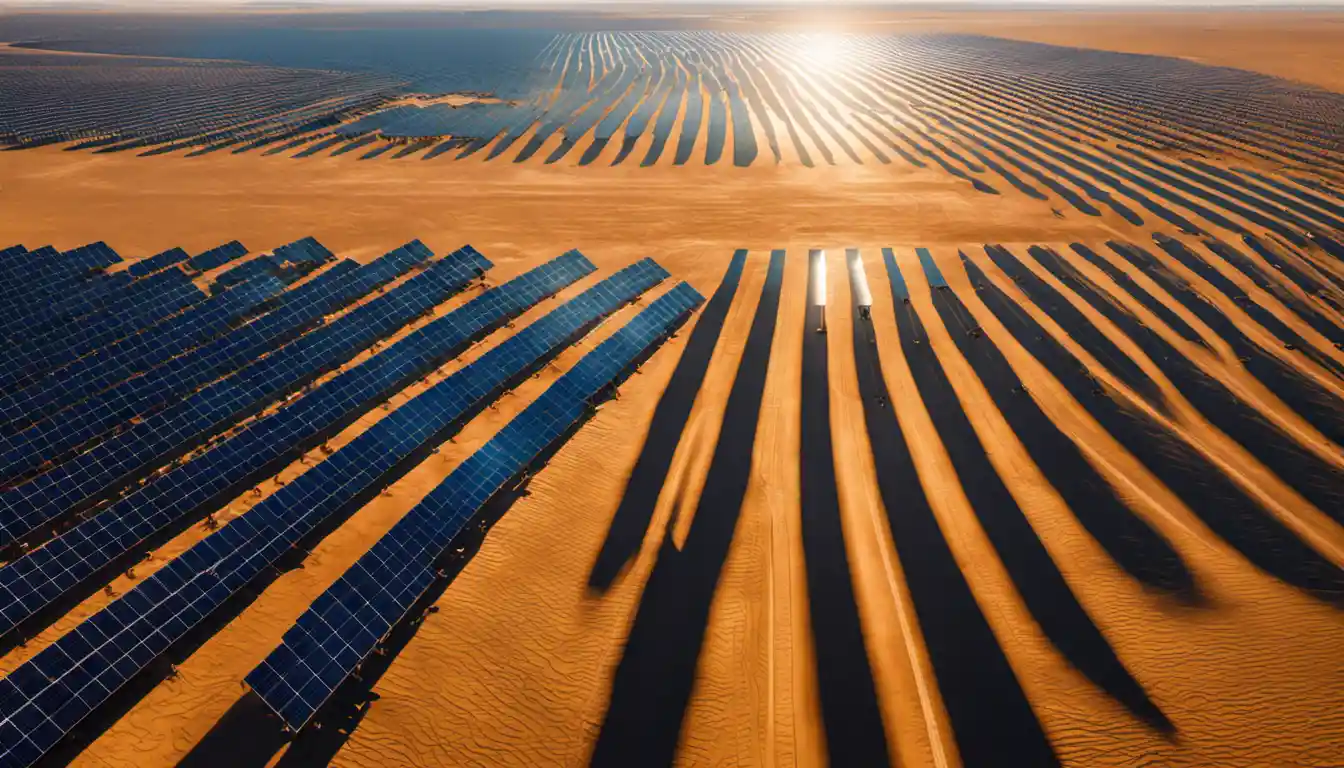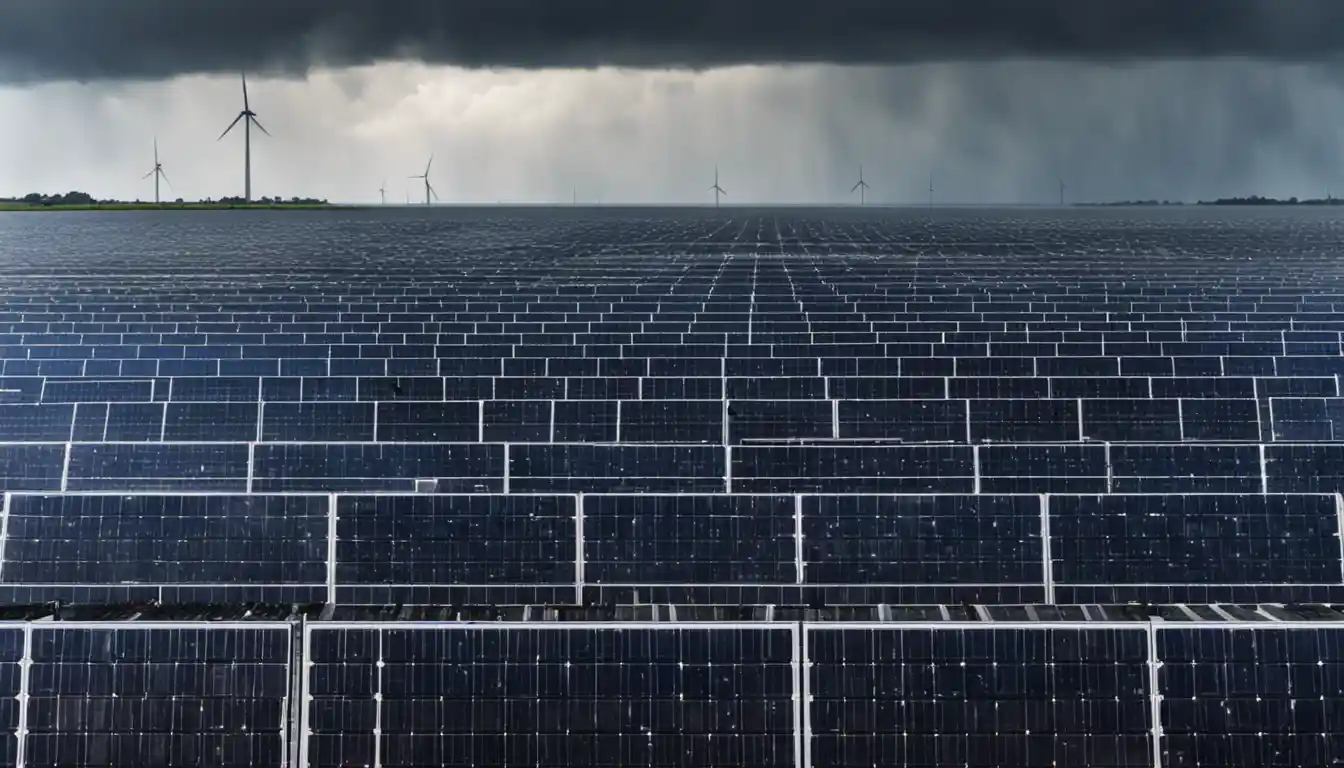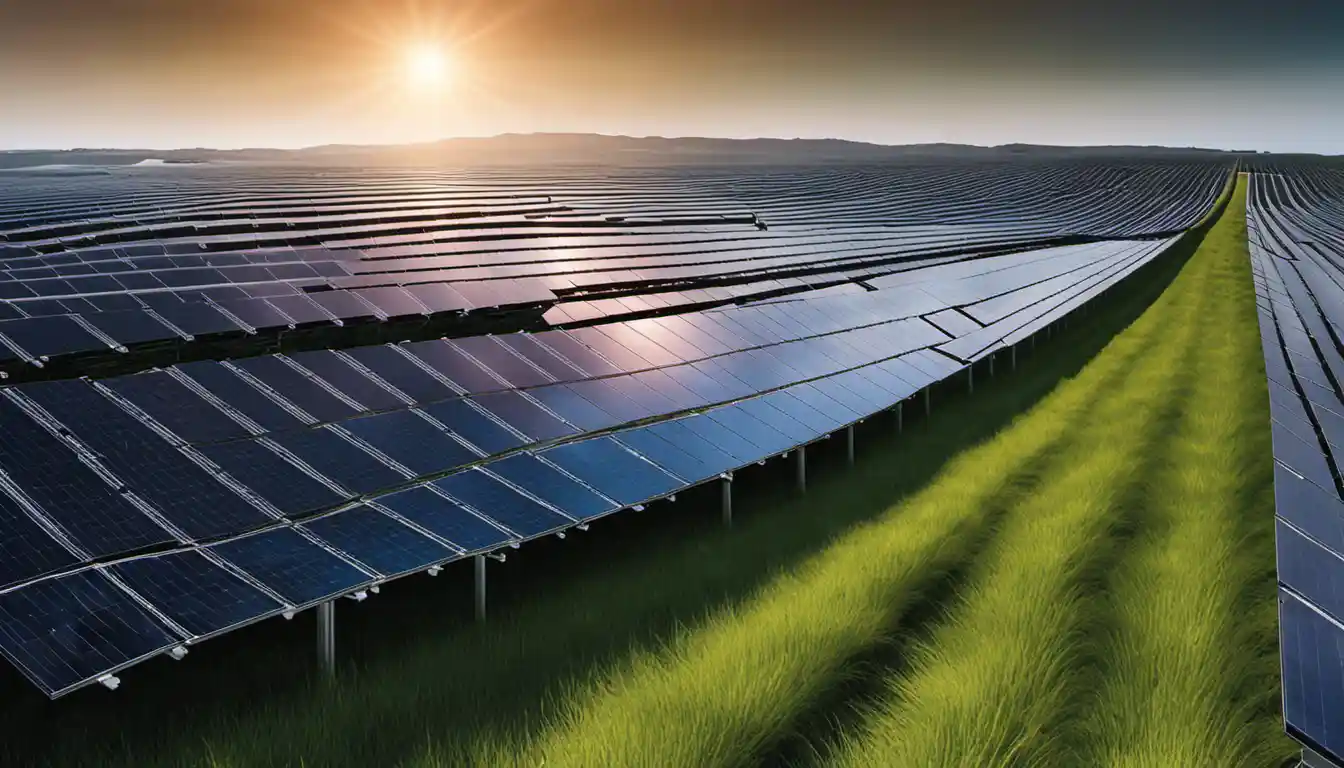Defining Solar Panel Efficiency
Solar panels are generally quite efficient, with most commercial panels converting about 15-20% of solar energy into electricity. The highest performing solar panels can achieve an efficiency of about 22-26%, but these are more costly. The efficiency of solar panels is continually improving with advancements in technology.
Understanding Solar Cell Efficiency
So, what is solar cell efficiency? It is the proportion of sunlight energy that a solar cell can convert into usable electricity. Remember, a collection of solar cells composes a solar panel. Hence, when we discuss solar panel efficiency, we refer to the collective efficiency of the cells within it.
See also: Solar Panel Timer (Save Power)
Factors Affecting Solar Panel Efficiency
See also: Are Solar Panels Getting More Efficient? Discover the Advancements in Solar Technology
Solar Panel Design
The efficiency of solar panels is not a one-size-fits-all concept, and several factors influence a panel’s performance. One crucial factor is the design of the panel itself. The physical configuration, the number of solar cells and how they are arranged all play a part.
See also: How is Solar Panel Efficiency Calculated? A Comprehensive Guide
Solar Panel Inclination
The angle at which solar panels are installed is also essential. Panels should face the sun directly for a majority of daylight hours, and in most places, a tilt angle equal to the latitude of the location is optimal.
See also: What is Solar Panel Efficiency? Unraveling the Science for Sustainable Energy
Solar Panel Materials
The materials used in the construction of the panel play a big part too. Monocrystalline panels are more efficient than their polycrystalline counterparts. However, they are also more expensive.
See also: How to Increase Solar Panel Efficiency: Proven Tactics for Optimal Performance
Temperature and Climatic Conditions
Weather factors significantly impact efficiency. While solar panels need sunshine, high temperatures can negatively impact their effectiveness. Similarly, panels perform less efficiently in cloudy or rainy weather.
See also: Solar Panel Rated vs. actual (Interesting!)
How Efficient are Solar Panels in Practice?

Analysing Statistics and Figures
Given these variables, “how efficient are solar panels” is a question best answered with concrete data. On average, solar panels convert about 15-20% of the sun’s energy into usable electricity. However, the most efficient solar panels available today can achieve over 22% efficiency!
Discussing Efficiency Range
You’ll find solar panels with efficiency ratings anywhere between about 10% to above 22%. The efficiency range is vast because of variations in design, materials, and technological innovations incorporated into the panels.
Highlighting Most Efficient Solar Panels As Of Current Year
As of the current year, the most efficient panels on the commercial market can achieve over 22% efficiency. For example, the LG NeON R boasts an impressive 21.7% efficiency rating. These top-tier panels represent the gold standard in solar energy capture, but they come with a higher price tag.
Efficiency of Solar Panel Over Time
Do Solar Panels Lose Efficiency Over Time?
With time, solar panels degrade, resulting in decreased efficiency. The rate of degradation varies among models and manufacturers but is generally around 0.5%-1% per year. So, after 20 to 30 years, most solar panels will still produce electricity at about 80% of their initial capacity. This is called the solar panel efficiency over time.
Examining Solar Panel Efficiency During Different Seasons
Efficiency on Cloudy Days

Contrary to widespread belief, solar panels can generate electricity on cloudy days. In fact, Germany, not exactly renowned for its sunny climate, is one of the world leaders in solar energy production.
Efficiency During Winter
Winter months see shorter days and less intense sunlight, yet solar panels can still produce energy. Despite the snow, panels can work efficiently as cold temperatures can actually increase their power output.
Efficiency During Rain
Rain can help to clean the solar panels’ surfaces, ensuring their performance is not obstructed by dust or debris.
The Impact of Solar Panels’ Efficiency on Energy Savings
Installing solar panels can lead to remarkable energy savings. In sunny areas, you may even produce excess energy, allowing you to sell it back to the grid – another financial incentive!
Case Studies Demonstrating Cost-Savings
For instance, according to a 2019 case study, an average American homeowner offsets 70-100% of their electricity usage with solar – meaning they saved a hefty amount on energy bills.
Choosing the Right Solar Panels
Installing solar panels is a significant investment, and choosing the right panels is crucial.
Considerations When Selecting Efficient Solar Panels
When selecting efficient solar panels, key considerations include energy needs, budget, roof size, weather conditions, and the panel’s energy efficiency.
The Relation Between Efficiency and Cost

Remember, high efficiency does not always equate to the highest cost-saving. The most efficient solar panels are more pricey, but they’re not necessarily the most cost-effective.
Solar Panel Efficiency – How NASA takes Advantage of It
Experts continue to tweak solar panel efficiency for optimal output. NASA, for example, uses hyper-efficient solar cells for their space missions where every bit of power matters.
Application of Efficient Solar Panels Beyond Residential Use
From powering electric cars to being used in high-tech telescopes, efficient solar panels have vast applications beyond residential use.
How Efficient Can Solar Panels Potentially Be?
Conceptually, the sky is the limit when it comes to solar panel efficiency. However, in practice, scientists and engineers determine a theoretical limit known as the Shockley-Queisser limit.
Discussing Theoretical Limit
This limit accords that a single p-n junction solar cell should not exceed 33.7% efficiency. The rationale behind it is a bit complex, involving thermodynamic principles and quantum mechanics.
Current Progress Towards Maximum Efficiency
Currently, we’re still a bit off from the theoretical limit. But strides are being made every day in research facilities across the globe to achieve this efficiency threshold.
Debunking Solar Panel Myths
Let’s debunk the myth of 100% efficiency. Thanks to the laws of physics, solar panels can’t be 100% efficient. However, with current advancements, we’re getting closer and closer to the theoretical maximum, especially in labs and specialized applications.
Conclusion: The Realistic Expectations from Solar Panel Efficiency
Solar panels have undergone a long journey of innovation and development over time. And the journey isn’t over! I hope this blog allows you to see past any misconceptions that you may have about solar energy, and realize the true potential and value of installing a solar power system.
While some people are worried about the effectiveness of solar panels through glass or on cloudy days, it’s crucial to remember that even under less than ideal conditions, solar panels can and do generate electricity.
Remember one fact – solar panels don’t need heat, they need light. And, although some models may prove to be more efficient than others, in the end, all solar panels contribute to a more sustainable, energy-efficient world.



